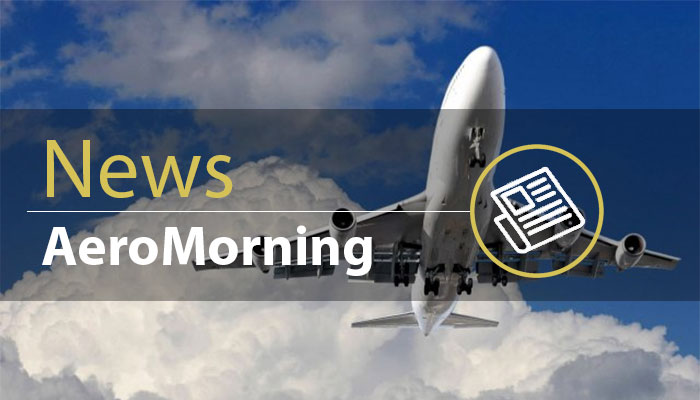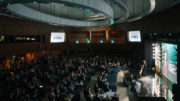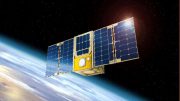U-Space, a company that designs nanosatellites, like all Newspace companies (a group of startups involved in the space industry and commerce) faces the challenges of financing, public acceptance, recruitment and industrial sovereignty. Let’s take a look at the challenges facing Newspace through the eyes of U-SPACE.
The search for customers
U-Space designs nanosatellites for two customer segments: private and public. State: On the French side, U-Space is well established in the CNES and defense sectors, where the company has direct contacts to respond to government/industry priorities. It relies on the “Newspace Alliance”, an association of French players in the NewSpace sector, to promote their know-how at national and international level. The Alliance sits on the Comité de concertation Etat-Industrie sur l’Espace (COSPACE), a committee set up by the French government to define France’s strategic priorities for the space industry.
Abroad, U-Space establishes relations with foreign space agencies through the intermediary of the French government. For example, U-Space participates in certain Business France delegations at trade fairs abroad, enabling it to promote its products.
Another way of accessing foreign customers is to capitalize on the export activities of Thalès and Airbus. When these companies sell abroad, the country in question often asks for “offsets”. Traditionally, these usually include engineering training, but increasingly they also include practical training, which takes the form of internships in France at U-Space or in the country itself, with the construction of a satellite assembly center.
The private part of the customer search takes place at trade shows such as Euroconsult, World Business Week, Symposium 4S, Space Tech Expo Bremen, which bring together equipment suppliers, satellite manufacturers and customers, and this is where U-Space can capture new private customers.
U-Space’s customer loyalty is intrinsic to its services: when U-Space sells to a customer, the latter gains access to an operations support service. What’s more, U-Space offers preliminary or feasibility studies upstream of a possible nanosatellite construction project. CNES, EVER IMPACT, CONTINENTAL and THALES ALENIA SPACE, to name but a few, have already benefited from this service.
The search for funding: In addition to the revenues generated by U-Space’s contract wins, the company raised €7 million in the summer of 2022 from three private French funds: Karot Capital, BPI Def Invest and BNP Paribas Développement.
Mr Fabien Apper, President of U-Space, commented: “This has supported our first growth, enabled us to carry out research and development, design our first programs, and launch the construction of our factory, with deliveries scheduled for the end of March-April 2024 following our 8 contract signatures”.
The company will have to prove itself at every level. U-SPACE has grown from 20 employees in the summer of 2022 to 70 today, and plans to reach 100 by the end of 2024.
Another source of funding is public subsidies. In 2022, U-SPACE received substantial support from La Région Occitanie and the Agence d’Innovation de Défense, as well as a grant under the “Constellation” France 2030 call for projects.
On this occasion, U-Space created a consortium with Anywaves, Unseenlabs and Reflex CES to share its roadmap in harmony.
Values and culture
One of U-SPACE’s core values is the human and collective adventure of meeting ambitious challenges together. U-SPACE holds two seminars a year. Originally, it was a cohesion seminar. Given its success, it was decided to hold two a year, bringing together all the teams, with working groups and brainstorming sessions, in June and December each year. The cohesion and brainstorming agendas include a review of objectives and a list of efforts to be made and challenges to be met, which are very useful to the company twice a year.
The company aims for technical excellence.
One last important point: benevolence. The company says it does its utmost to look after its employees’ health.
Outreach to the general public:
U-SPACE has a number of initiatives aimed at the general public, notably via LinkedIn. Fabien Apper added: “Personally, I’ve been appointed sponsor of the space professions website at the Saint-Orens high school, and I think it’s important to get started as soon as possible.
A competitive advantage:
U-SPACE differentiates itself and stands out by the way it industrializes its “mass-produced” products, which meet the real challenges faced by its customers: to have profitable constellations.
USPACE has positioned itself on a double advantage: providing a fair investment/revenue balance over 5 to 7 years, with lower satellite costs, and ensuring the quality and performance of satellites, which must constantly produce data if there is to be a return on investment.
Successful hyper-growth to be continued:
2024 is a pivotal year for U-SPACE, which will be increasing its production rates. U-SPACE has already demonstrated its ability to manage hyper-growth and the structuring of the company by going from 2 to 8 projects, while successfully managing the development of its products. This is made possible by the implementation of a corporate and product-specific scheme, with the help of advisors from the French space industry and former members of the One Web project, whose feedback it benefits from through a committee of advisors who advise it on the best practices to follow.
U-Space is not verticalized industrially, and sources some of its products externally. Its suppliers are 80% French, including Comat, Syrlinks, Microtech and Sodern. With the One Web adventure, many of them have increased their skills, to the great benefit of U-Space.
Preserving and accelerating European and national sovereignty
U-Space believes that, like the Americans, Europe needs to create large-scale space programs capable of winning competitions.
So it’s a very good sign that the Iris2 project is underway, a very large program led by the European community, capable of competing with Starlink and involving a large number of space players. France has long lacked a real space defense strategy that integrates the new players.
In the USA, on programs launched by DARPA (the US research agency that develops cutting-edge technologies for the military and other uses), it was decided not just to build large satellites, but also to have a strong program for small satellite constellations. This really “pulled” the American industry. (Tyvac bought by Lockheed Martin, Blue Canyon Technologies bought by Raytheon…)
As far as U-Space is concerned, there are initiatives in France by the Defense Innovation Agency and the Space Command, but for the moment, no large-scale program is in the roadmaps of the DGA (Direction Générale de l’Armement). A clear strategy on this subject is expected from the French Ministry of Defence.
In the past, the capabilities offered by small satellite constellations were the talk of academic and research circles. And decision-making bodies in the space sector were limited to representatives of the French government, Airbus and Thalès. Today, things have changed, and we’re witnessing a good dynamic that integrates new entrants, creating a stronger collective. The momentum is building. Nadia Didelot for AeroMorning







Be the first to comment on "U-Space: many challenges to meet in 2024"